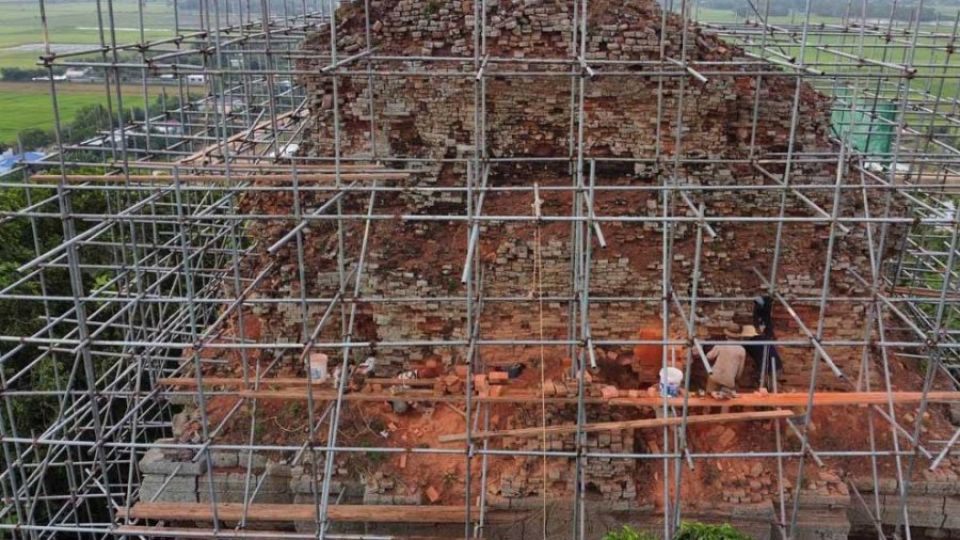January 29, 2024
DHAKA – Minister of Culture and Fine Arts Phoeurng Sackona has announced plans to submit Cambodia’s Chisor Mountain Temple and Phnom Da Temple for inclusion on the UNESCO World Heritage List.
Sackona shared the plans as she chaired the closing of the ministry’s annual meeting, held to review its past achievements and set goals for the coming year.
During the January 24-25 meeting, she instructed the Directorate General of Heritage, the Directorate General of Techniques for Cultural Affairs, and all municipal and provincial culture departments to continue to focus on their key priority tasks.
“The relevant units must strive to prepare the legal documents we need to nominate Chisor Mountain Temple and Phnom Da Temple to the heritage list. They may take the form of a royal decree or sub-decree, but this work should be expedited as soon as possible,” she said.
She asked them to continue to work with all relevant state institutions to curb any activities that may damage any of the Kingdom’s archaeological heritage sites, including its many centuries-old pagodas.
“Action must be taken to protect our heritage sites. They need to be clearly indentified, and state ownership must be registered urgently so we can offer the maximum protection,” she said.
She said the fact that crimes related to Cambodia’s tangible and intangible cultural heritage declined in 2023 was not a sign that the offences was fading of its own accord, but a testament to the ministry’s strong efforts.
She said that in addition to historical sites, the places of worship of ethnic minorities are also being impacted.
“We must continue to collaborate with local authorities to protect cultural riches. We should work closely with ethnic minority communities and the private sector to establish ethnic minority community centres, like the one in Ratanakkiri province,” she said.
Hab Touch, permanent secretary of state for the ministry, said that a preliminary 2024-28 action plan contained a total of 801 activities. Of these, 662 will be carried out using the national budget, 58 in collaboration with partners and the remaining 80 will require additional funding before they are implemented.
He reported that tangible cultural crimes in 2023 fell by 1,181 cases to 4,035, down from 5,216 the previous year.
“The crimes that saw a decrease included illegal construction, land grabbing, forest and wildlife offences and so on. Illegal construction, as reported by the APSARA National Authority [ANA], declined from 5,026 cases to 3,897,” he stated.
Regarding intangible crimes, Touch noted incidents involving the unauthorised use of images of ancient artefacts for product advertisements on social media and statue construction that did not adhere to ministry-set standards.
He said such cases totalled 43 in 2023, compared to 53 the previous year.


